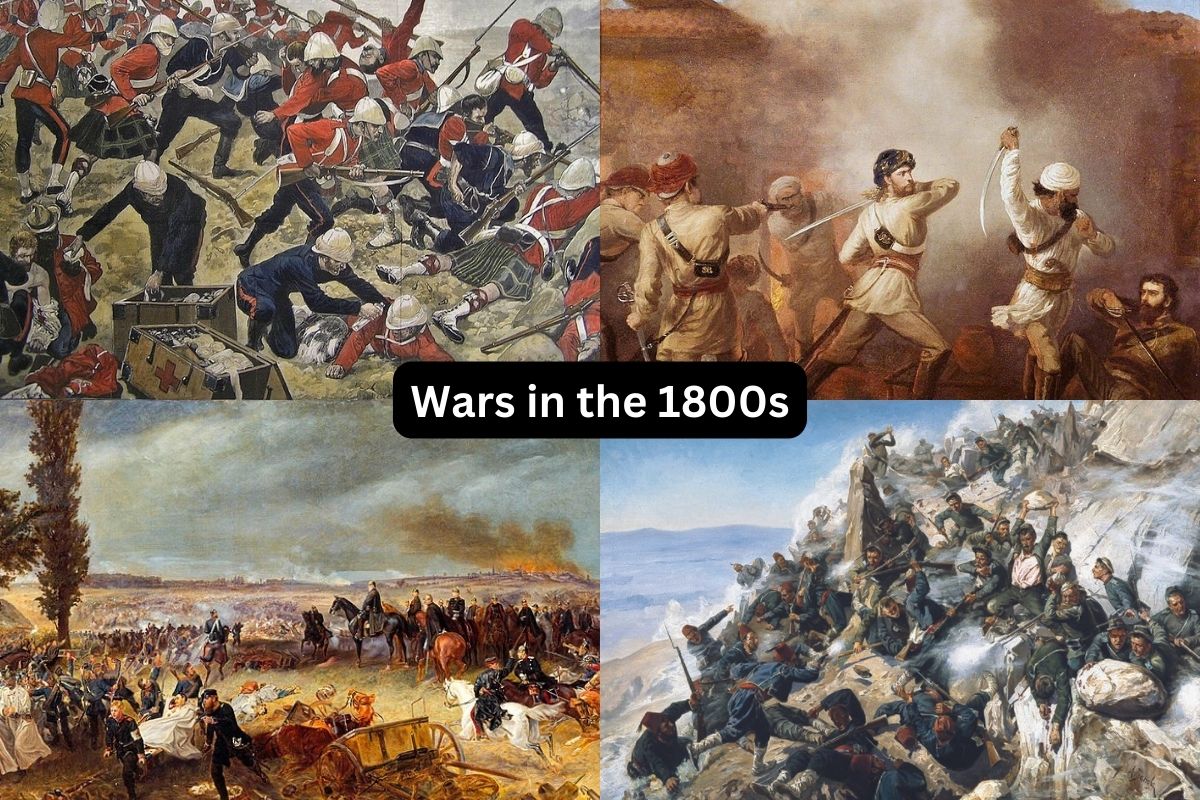The 19th century was marked by numerous significant wars and conflicts across the globe. This period witnessed major historical events such as the Napoleonic Wars, which shaped Europe’s political landscape, and the American Civil War, which determined the fate of the United States.
Colonial powers engaged in conflicts to expand their territories, while nations fought for independence and self-governance.
The 1800s saw wars that involved technological advancements in warfare, including the use of steamships, railroads, and improved artillery. Tensions arising from imperialism, nationalism, territorial disputes, and economic interests fueled these conflicts.
The century witnessed wars like the Crimean War, Russo-Turkish War, and First Sino-Japanese War that had far-reaching consequences for the regions involved.
Also Read: Wars in the 1900s
The wars of the 1800s shaped the course of history, reshaped borders, and influenced the trajectory of nations and empires.
List of Wars in the 1800s
| War | Duration | Additional Information |
|---|---|---|
| Napoleonic Wars | 1803-1815 | Series of conflicts involving Napoleon Bonaparte’s French Empire and various European powers. |
| War of 1812 | 1812-1815 | Fought between the United States and the United Kingdom over maritime issues and territorial disputes. |
| Greek War of Independence | 1821-1832 | Greek revolution against the Ottoman Empire, resulting in the establishment of an independent Greek state. |
| First Opium War | 1839-1842 | Fought between China’s Qing Dynasty and the British Empire over trade and the opium trade in particular. |
| Mexican-American War | 1846-1848 | Conflict between the United States and Mexico, resulting in significant territorial changes in North America. |
| Crimean War | 1853-1856 | Fought primarily on the Crimean Peninsula, involving Russia against an alliance of Ottoman Empire and others. |
| Indian Rebellion of 1857 | 1857-1858 | Major uprising against British rule in India, with a variety of political, economic, and social causes. |
| American Civil War | 1861-1865 | Civil war fought between the Northern and Southern states of the United States primarily over slavery issues. |
| Austro-Prussian War | 1866 | Conflict between Austria and Prussia that resulted in the expansion of Prussian influence in German affairs. |
| Franco-Prussian War | 1870-1871 | War between France and Prussia, leading to the fall of the French Second Empire and German unification. |
| Russo-Turkish War | 1877-1878 | Fought between the Russian Empire and the Ottoman Empire, resulting in territorial changes in the Balkans. |
| Anglo-Zulu War | 1879 | Conflict between the British Empire and the Zulu Kingdom in Southern Africa. |
| Mahdist War | 1881-1899 | Sudanese revolt against the Egyptian-Ottoman rule, led by the self-proclaimed Mahdi, Muhammad Ahmad. |
| First Boer War | 1880-1881 | Conflict between the British Empire and the Boer states in South Africa. |
| First Sino-Japanese War | 1894-1895 | War between China’s Qing Dynasty and Japan, resulting in the loss of influence for China and gains for Japan. |
| Spanish-American War | 1898 | Conflict between the United States and Spain, resulting in Spanish cession of territories to the U.S. |
| Second Boer War | 1899-1902 | War between the British Empire and the Boer republics in South Africa, leading to British victory. |
1. Napoleonic Wars (1803-1815)
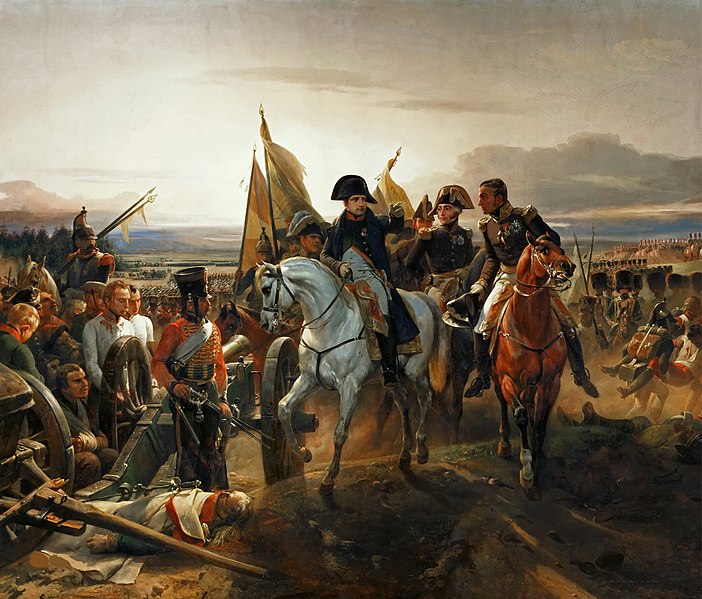
Napoleonic Wars (1803-1815): The Napoleonic Wars were a series of conflicts that emerged as a result of the French Revolution and the rise of Napoleon Bonaparte.
These wars involved major European powers, including France, Britain, Austria, Prussia, and Russia. Napoleon’s ambition to expand French territory led to a series of military campaigns and battles across Europe.
The wars concluded with Napoleon’s defeat at the Battle of Waterloo in 1815, leading to his exile and the restoration of the Bourbon monarchy in France.
2. War of 1812 (1812-1815)

War of 1812 (1812-1815): The War of 1812 was fought between the United States and Great Britain. The causes of the war included trade disputes, British impressment of American sailors, and American desires to expand westward.
The conflict saw various naval battles and land engagements, including the burning of Washington, D.C., by the British in 1814. The war ended with the Treaty of Ghent in 1815, which restored pre-war borders and resolved several outstanding issues between the two nations.
3. Greek War of Independence (1821-1832)

Greek War of Independence (1821-1832): The Greek War of Independence was a successful revolution by the Greek nationalists against the Ottoman Empire.
Greek aspirations for independence from Ottoman rule led to a series of rebellions and armed conflicts. The war involved guerrilla warfare, naval battles, and major sieges.
Philhellenic support from various European powers, including Britain, France, and Russia, played a significant role in assisting the Greek cause. The conflict resulted in the establishment of the independent Kingdom of Greece in 1832.
4. First Opium War (1839-1842)
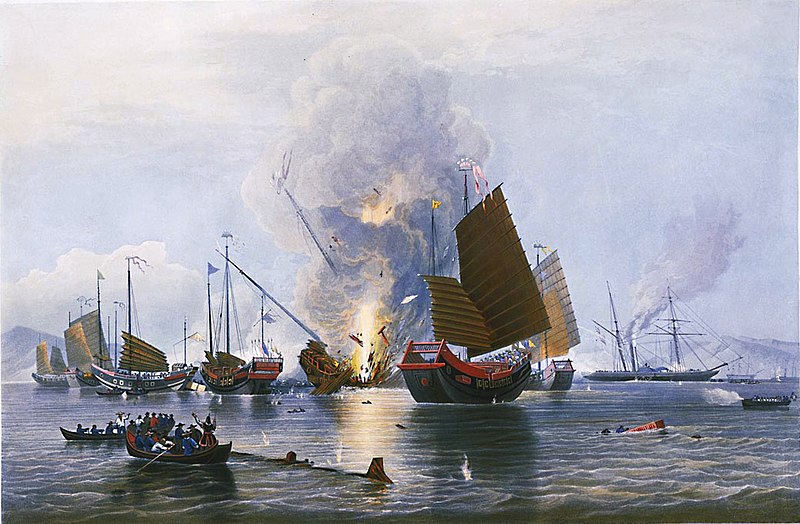
First Opium War (1839-1842): The First Opium War was fought between the Qing Dynasty of China and the British Empire.
The war originated from trade imbalances and the Chinese government’s efforts to curtail the opium trade, which was being carried out by British merchants. The conflict involved a series of naval engagements and land battles, with the British forces ultimately securing significant victories.
The Treaty of Nanking, signed in 1842, ended the war and forced China to cede Hong Kong to the British, open several ports to trade, and pay reparations.
5. Mexican-American War (1846-1848)
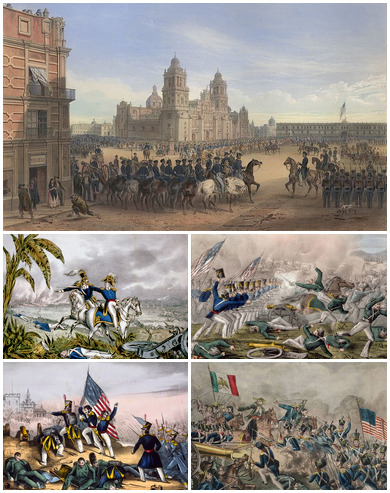
Mexican-American War (1846-1848): The Mexican-American War was fought between the United States and Mexico over territorial disputes.
The conflict arose from the annexation of the Republic of Texas by the United States and the unresolved border disputes between Texas and Mexico. The war involved major battles, including the Battle of Buena Vista and the Battle of Chapultepec.
The Treaty of Guadalupe Hidalgo, signed in 1848, ended the war and resulted in Mexico ceding significant territory to the United States, including present-day California, New Mexico, Arizona, Nevada, Utah, and parts of Colorado and Wyoming.
6. Crimean War (1853-1856)
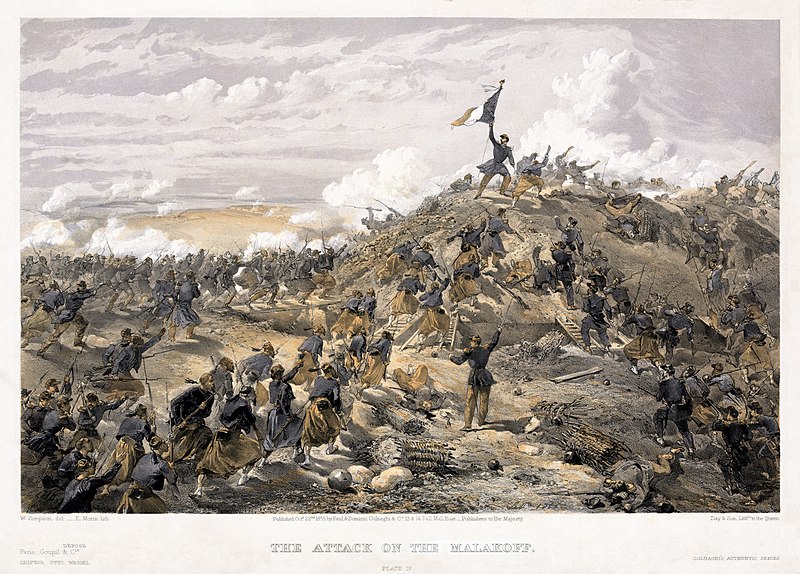
Crimean War (1853-1856): The Crimean War was a conflict fought primarily on the Crimean Peninsula in the Black Sea region.
The war was triggered by a dispute over the rights of Christian minorities in the Holy Land, leading to a confrontation between the Russian Empire and an alliance of France, Britain, the Ottoman Empire, and Sardinia.
The war witnessed famous battles, including the Siege of Sevastopol and the Charge of the Light Brigade.
It concluded with the Treaty of Paris in 1856, which confirmed the independence and integrity of the Ottoman Empire while limiting Russian influence in the region.
7. Indian Rebellion of 1857 (1857-1858)
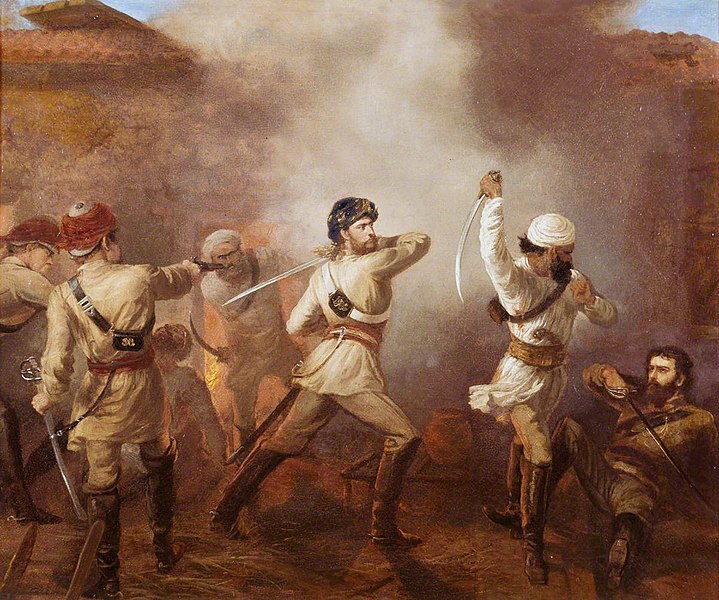
Indian Rebellion of 1857 (1857-1858): The Indian Rebellion of 1857, also known as the Indian Mutiny or the First War of Independence, was a widespread uprising against British colonial rule in India.
The rebellion originated from various grievances, including the introduction of new rifle cartridges rumored to be greased with animal fat, which offended both Hindu and Muslim soldiers.
The conflict spread across northern and central India, with rebels facing off against British forces. The rebellion was eventually suppressed by the British, resulting in significant loss of life on both sides. The British government subsequently assumed direct control of India from the British East India Company.
8. American Civil War (1861-1865)

American Civil War (1861-1865): The American Civil War was a major conflict fought between the northern states (the Union) and the southern states (the Confederacy) in the United States.
The war stemmed primarily from disputes over slavery, states’ rights, and regional economic differences. The Confederacy sought to secede from the Union, leading to a protracted and bloody conflict.
The war saw significant battles, including Gettysburg, Antietam, and Vicksburg. The Union’s victory resulted in the abolition of slavery and the preservation of the United States as a single, indivisible nation.
9. Austro-Prussian War (1866)
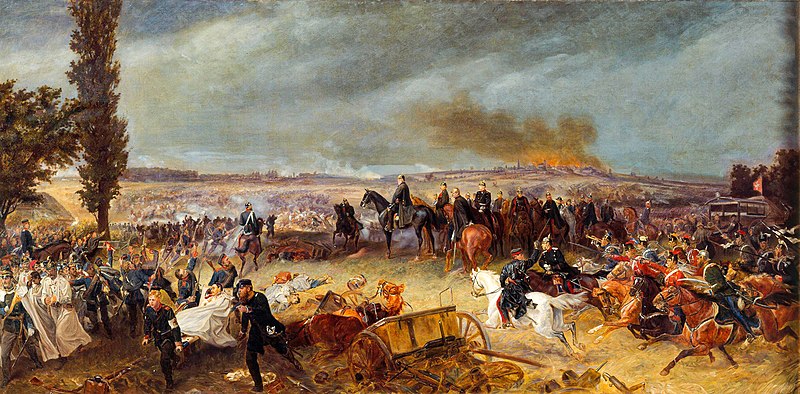
Austro-Prussian War (1866): The Austro-Prussian War, also known as the Seven Weeks’ War, was fought between the Austrian Empire and the Kingdom of Prussia, along with its allies.
The conflict arose from tensions between Austria and Prussia over influence and leadership within the German states. The war witnessed rapid Prussian mobilization and the effective use of railways for military transportation.
The Prussian victory resulted in the dissolution of the German Confederation and the establishment of the North German Confederation, led by Prussia, which laid the groundwork for the eventual unification of Germany.
10. Franco-Prussian War (1870-1871)
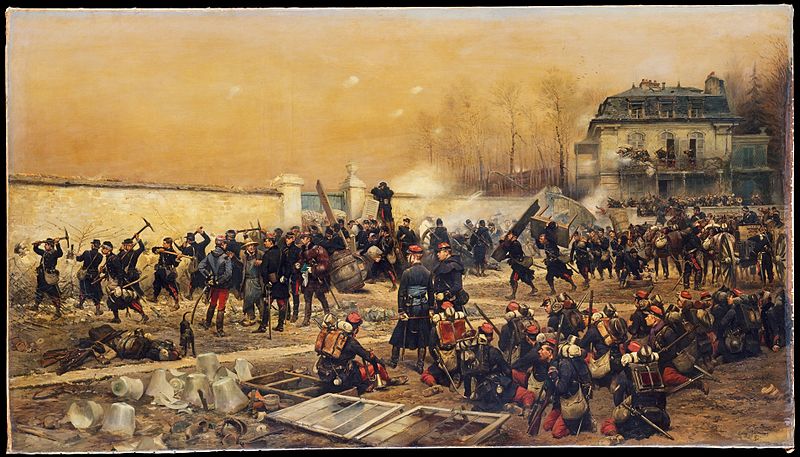
Franco-Prussian War (1870-1871): The Franco-Prussian War was a conflict fought between the French Empire, led by Napoleon III, and the Kingdom of Prussia, which later became the German Empire.
The war was triggered by tensions between the two powers over the Spanish throne, which was left vacant after the abdication of Queen Isabella II. The conflict saw swift Prussian victories, including the decisive Battle of Sedan, which resulted in the capture of Napoleon III. Paris endured a long siege before surrendering in 1871.
The war ended with the Treaty of Frankfurt, which led to the formation of a unified German Empire under the leadership of Prussia and the imposition of heavy reparations on France.
11. Russo-Turkish War (1877-1878)
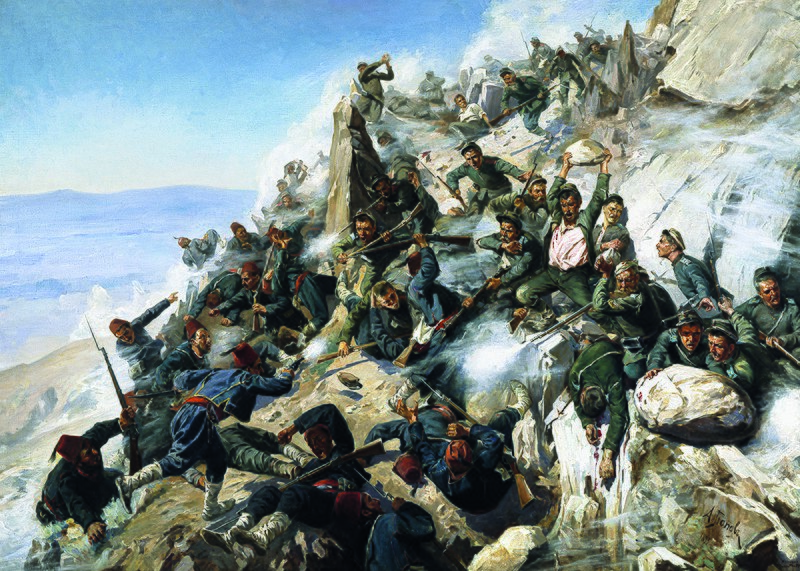
Russo-Turkish War (1877-1878): The Russo-Turkish War was a conflict fought between the Russian Empire and the Ottoman Empire.
The war emerged from the ongoing tensions between Russia and the Ottoman Empire over control of the Balkans, where several Christian populations sought independence.
The conflict involved major battles, including the Siege of Plevna and the Battle of Shipka Pass. Despite initial setbacks, the Russian forces eventually achieved significant victories, leading to the Treaty of San Stefano in 1878.
The treaty granted autonomy to several Balkan states and marked a significant setback for the Ottoman Empire, although subsequent negotiations at the Congress of Berlin modified the terms of the treaty.
12. Anglo-Zulu War (1879)

Anglo-Zulu War (1879): The Anglo-Zulu War was fought between the British Empire and the Zulu Kingdom in Southern Africa. The conflict arose from British colonial expansionism and tensions between the Zulu people and British authorities.
The war commenced with a British invasion of Zululand, leading to the famous Battle of Isandlwana, where the Zulus achieved a decisive victory.
However, the British forces regrouped and ultimately defeated the Zulus at the Battle of Ulundi. The war concluded with the annexation of Zululand into British-controlled Natal.
13. Mahdist War (1881-1899)

Mahdist War (1881-1899): The Mahdist War, also known as the Sudanese Mahdist Revolt, was a protracted conflict between the Mahdist Sudanese forces and the Anglo-Egyptian forces.
The war arose from the rise of Muhammad Ahmad, a Sudanese religious leader who proclaimed himself the Mahdi, a messianic figure. The Mahdist forces sought to overthrow the Anglo-Egyptian rule in Sudan. The war witnessed several major battles, including the Siege of Khartoum, where British General Charles Gordon was killed.
The conflict continued with intermittent hostilities until 1899 when the British forces finally defeated the Mahdist forces at the Battle of Umm Diwaykarat. The war resulted in the re-establishment of Anglo-Egyptian control over Sudan.
14. First Boer War (1880-1881)
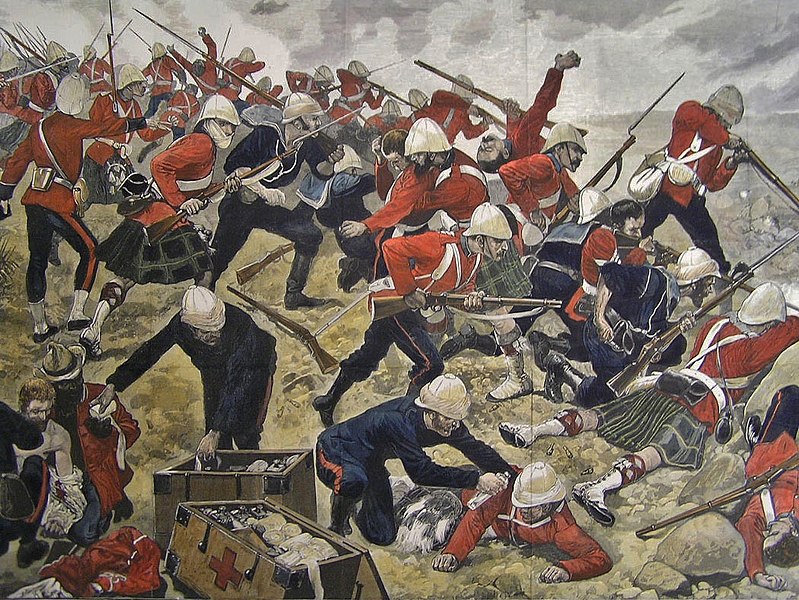
First Boer War (1880-1881): The First Boer War was fought between the British Empire and the South African Republic (Transvaal).
The conflict arose due to tensions over British colonial rule and the Transvaal’s desire for self-governance. Boer (Afrikaner) farmers resented British policies and taxation, leading to armed resistance.
The war witnessed several notable engagements, including the Battle of Majuba Hill, where the Boers achieved a decisive victory. The British forces ultimately withdrew, and the war concluded with the signing of the Pretoria Convention, granting self-governance to the Transvaal.
15. First Sino-Japanese War (1894-1895)
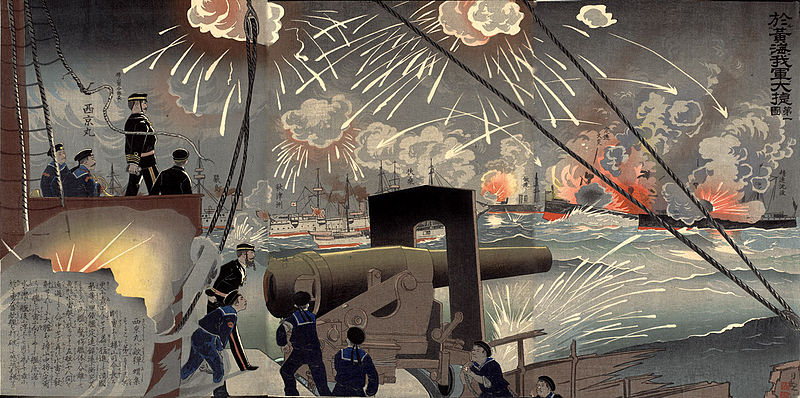
First Sino-Japanese War (1894-1895): The First Sino-Japanese War was fought between the Qing Dynasty of China and the Empire of Japan. The conflict originated from tensions over influence in Korea and Taiwan.
The war saw a series of naval battles, including the Battle of the Yalu River, where the Japanese navy achieved a decisive victory. The Japanese forces also conducted successful land campaigns, capturing strategic locations in China.
The Treaty of Shimonoseki, signed in 1895, ended the war and resulted in China ceding Taiwan and the Pescadores Islands to Japan, recognizing Korea’s independence, and paying a significant indemnity.
16. Spanish-American War (1898)
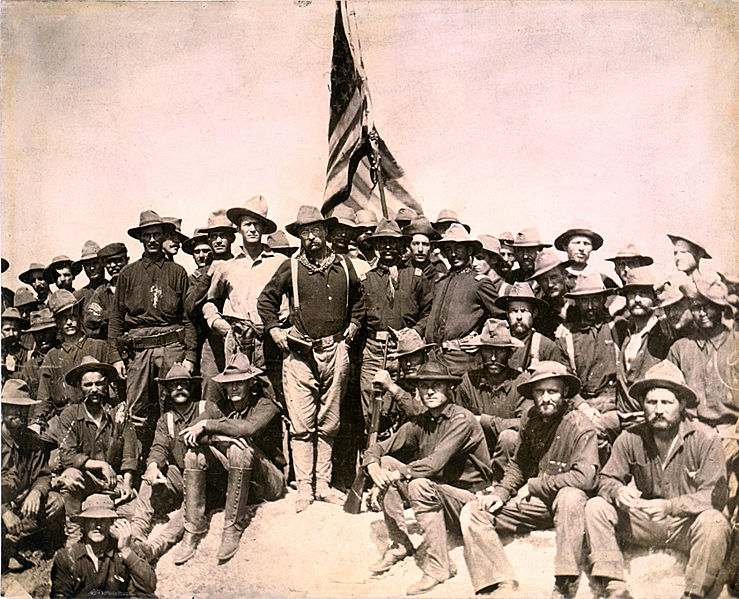
Spanish-American War (1898): The Spanish-American War was fought between Spain and the United States. The war was triggered by the explosion of the USS Maine in Havana Harbor and public outcry over Spanish rule in Cuba.
The conflict expanded beyond Cuba and included engagements in the Philippines and Puerto Rico. The United States achieved several naval victories, including the Battle of Manila Bay, and captured territories from Spain.
The war ended with the Treaty of Paris, which granted Cuba its independence, ceded Puerto Rico and Guam to the United States, and transferred the Philippines to the United States for a financial compensation.
17. Second Boer War (1899-1902)
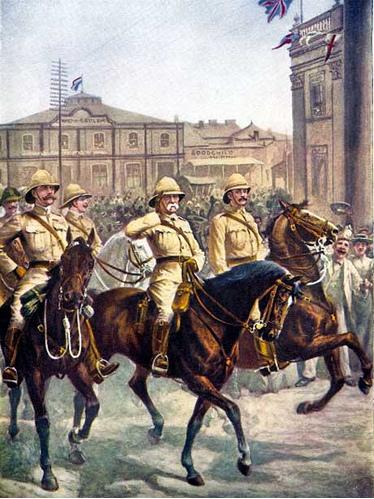
Second Boer War (1899-1902): The Second Boer War was fought between the British Empire and the South African Republic (Transvaal) and Orange Free State. The war arose from tensions over British imperial ambitions and the discovery of gold in the Boer territories.
The conflict saw a series of sieges, guerrilla warfare, and British military campaigns. The British implemented a scorched earth policy, leading to significant civilian suffering. The war witnessed the introduction of concentration camps, where Boer women and children were interned.
The British ultimately achieved victory, but not before facing significant challenges. The war concluded with the signing of the Treaty of Vereeniging, which led to the incorporation of the Boer territories into the British Empire.
